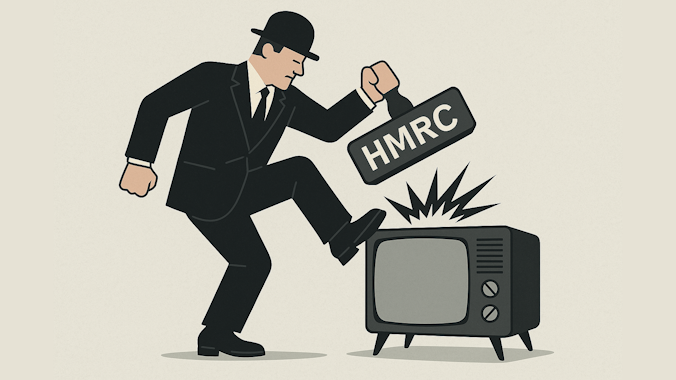In the week that ITV announced it is making two hundred Daytime staff redundant in a bid to make cost savings, the company’s annual report and accounts for 2024 suggests that a £61m potential tax bill hangs over its head. Based on ITVs figures for year end 2024, the liability represents twice what ITV are seeking to save and would wipe out the 11% increase in their profit (EBITA) year on year.
The £61m bill is likely to contain a mixture of HMRC tax claims based on ITV hiring either sole traders or individuals working through intermediaries, which are covered by updated IR35/off-payroll rules.
The revelation in ITV’s annual report and accounts for 2024 that the broadcaster faces a staggering £61 million tax liability dating back to 2016 exposes the devastating impact of bad tax legislation on the freelance sector, in particular Britain's creative industries.
Insiders at ITV have described the scale of cuts announced to their Daytime Department as akin to a ‘bloodbath’ . ‘Lorraine’ and ‘Loose Women’, both key brands, will see their outputs reduced by up to two thirds.
IR35 has become a bureaucratic weapon that HMRC has wielded against businesses, after forcing MPs to implement legislation that fundamentally runs counter to how modern creative industries operate. ITV is haemorrhaging talent, axing programmes, and facing financial penalties that could have been put to better use.
The freelance journalism sector, once a vibrant ecosystem of specialist expertise, is being systematically dismantled. Broadcasters like ITV have traditionally relied on this pool of skilled professionals to deliver quality content efficiently. However, IR35 has created a climate of fear where organisations are making hiring decisions based on regulatory risk rather than business needs.
The legislative tax sludge has led to a perverse situation where freelancers are being reclassified as 'deemed employees', a classification that strips them of genuine employment protections while simultaneously removing the flexibility that made them valuable to broadcasters. It's the worst of both worlds: freelancers lose their autonomy without gaining job security, while broadcasters lose access to flexible talent while shouldering increased regulatory burden.
The £61 million tax bill now facing ITV serves as a stark warning to the entire industry. This is not just about one company's tax affairs—it's about a regulatory framework that is actively destroying the creative partnerships that have made British broadcasting competitive on the global stage. When organisations are forced to choose between compliance costs and creative investment, the entire sector suffers, and ultimately, so does the viewing public.
Whilst there are multi-reasons for the brutal shake up at ITV to deliver cost savings, one cannot ignore the £61m elephant in the room – HMRC’s longstanding tax attack on the media sector under the guise of IR35.
[Technical Note: Firms have always been potentially liable for the misclassification of sole traders, and also became liable from 2012 for misclassification for individuals working via intermediaries.]

